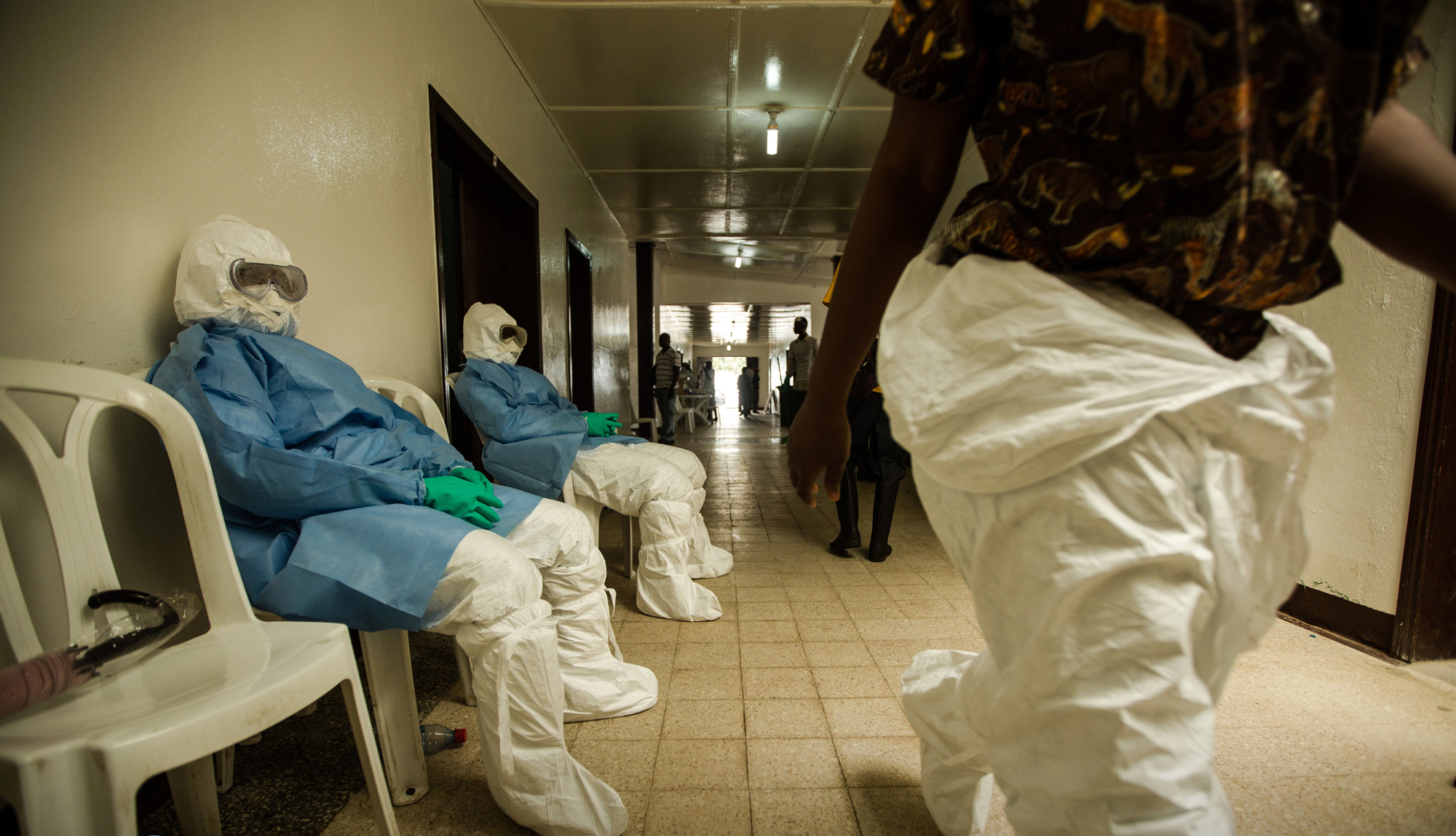

The U.S. Centers for Disease Control and Prevention have confirmed that a second healthcare worker has contracted Ebola after treating a patient in the United States. News of a second worker’s illness is not necessarily surprising after one Dallas nurse was confirmed to have Ebola on October 12. Both workers cared for Thomas Eric Duncan, a Liberian citizen who developed Ebola symptoms while visiting the U.S. Duncan sadly died at the hospital last week.
The first nurse, who drove herself to the hospital after noticing she had a low fever, is now in “good condition,” the New York Times reports. Both workers are in isolation rooms at Texas Health Presbyterian Hospital.
How can U.S. healthcare workers get sick with Ebola? Experts have often emphasized that the reason Ebola has killed thousands in West Africa is because some clinics there don’t have even basic equipment, such as gloves, for preventing the spread of the disease. For a look at what some cities are dealing with, just see this disturbing collection of photos.
Healthcare workers are especially vulnerable when they’re taking off their protective gear.
The situation is quite different in the U.S., and an Ebola epidemic in America is still extremely unlikely. Yet it’s also becoming clear that it can be tricky for healthcare workers to do everything they must do to protect themselves from a severely ill Ebola patient’s bodily fluids. Check out Vox’s screenshots of the dozens of steps doctors and nurses must follow to remove their masks and “bunny suits” safely. Healthcare workers are especially vulnerable when they’re taking off that gear, because it may have come in contact with bodily fluids, perhaps even with droplets that are too small to see. In addition, the workers may not have practiced this level of biosafety in a long time. All that can add up to small mistakes with grave consequences.
More seriously, the U.S.’s largest nursing union put out a statement claiming the Texas Health Presbyterian Hospital made a series of mistakes when admitting Duncan, including not putting him in isolation right away, not immediately giving nurses proper protective gear, and sending samples taken from Duncan through the hospital’s tube system. The statement also says the hospital didn’t train nurses properly. (The sick Texas healthcare workers are not members of the union, but contacted the union with their claims.)
CDC director Thomas Frieden has since said the agency should have sent a trained team to help at the hospital as soon as news broke of the first case, the New York Times reports. Dealing with Ebola does seem to require a whole set of skills most U.S. hospitals may not regularly practice. The New Republic notes that Doctors Without Borders, a nonprofit that has responded to several Ebola outbreaks, has special checklists, a buddy system, and trained people to help doctors and nurses take off their masks, bunny suits, booties, and other protective coverings. Only one Doctors Without Borders worker has gotten Ebola, even though the organization has treated the majority of Ebola patients in this outbreak, Science magazine reported October 3.
Yesterday, the CDC released a statement saying the centers are making improvements at the Texas Health Presbyterian Hospital, including getting a person to oversee doctors and nurses when they put on and take off their protective gear. The centers have also put together a response team that will go to any U.S. hospital “within a few hours” of it receiving an Ebola patient.
